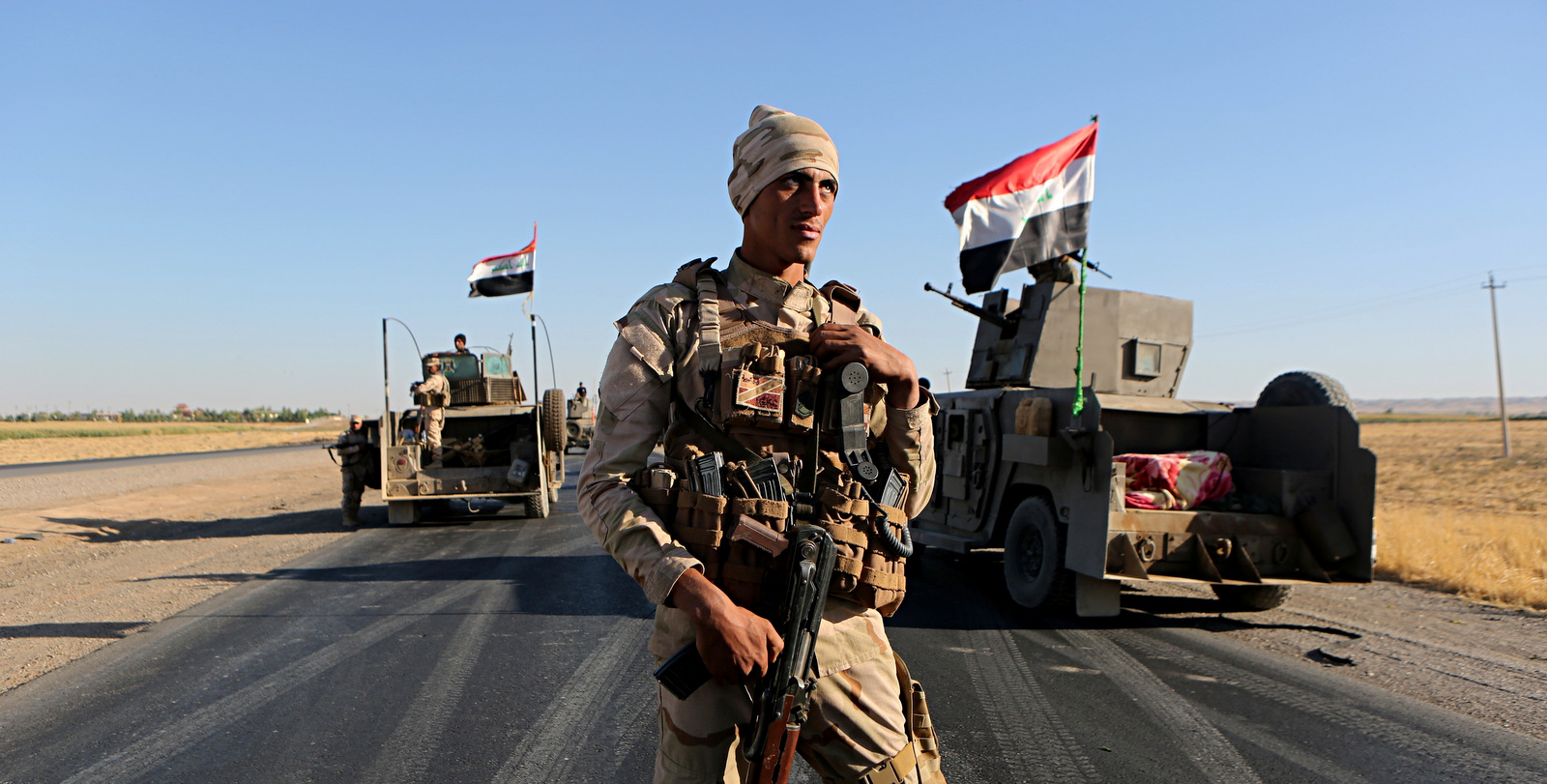ERBIL, IRAQ — For the past three years, Ali Musawi has been reporting for Press TV on updates, agreements, and clashes involving Daesh (ISIS), Kurdish factions, and the Iraqi armed forces. In an October 17, 2017 interview with Musawi, I was able to obtain on-the-ground insight from a war correspondent living in Erbil into the KRG referendum, the defeat of ISIS, and future of Iraq.
On September 25, despite what seemed to be a near-universal objection, a referendum took place in Northern Iraq, led by the Kurdish Regional Government’s (KRG) self-proclaimed president, Massoud Barzani. Nations worldwide — including; the U.S., U.K., France, UN, Iran, and the Iraqi government — all expressed their objection and dissent and were calling for its suspension.
Israel stands alone in support for KRG referendum

Israel was the only vocal supporter of the referendum, which many analysts believe was more to bolster the opportunistic Barzani’s legitimacy than it was about independence for Iraqi Kurds. Both Israeli and Kurdish flags were waved in demonstrations around the world, promoting and raising awareness for the Kurdish referendum. The Israelis and Kurds have mutually benefited from a long-standing relationship, which at times was concealed or downplayed in order to not draw attention and critical speculation.
As I mentioned in a previous article, in 1966, Iraqi defense minister Abd al-Aziz al-Uqayli blamed the Kurds of Iraq for seeking to establish “a second Israel” in the Middle East. He also claimed that “the West and the East are supporting the rebels to create [khalq] a new Israeli state in the north of the homeland as they had done in 1948 when they created Israel.” Interestingly enough, history is repeating itself with their present-day relationship, but most recently we are seeing that relationship brought out in broad daylight without either side shying away from it as they have in the past.
https://twitter.com/MardiniAlan3/status/901902777898684417
In the past, Israel has obtained intelligence, as well as support for a few thousand Jews fleeing Ba’athist Iraq. The Kurds have received security and humanitarian aid, as well as links to the outside world, especially the United States. The first official acknowledgment that Jerusalem had provided aid to the Kurds dates back to Sept. 29, 1980, when Prime Minister Menachem Begin disclosed that Israel had supported the Kurds “during their uprising against the Iraqis in 1965 to 1975” and that the United States was aware of this fact. Begin added that Israel had sent instructors and arms, but not military units.
Watch | A Peshmerga Captain has a message for Israel
Kurdish independence before and after the KRG referendum
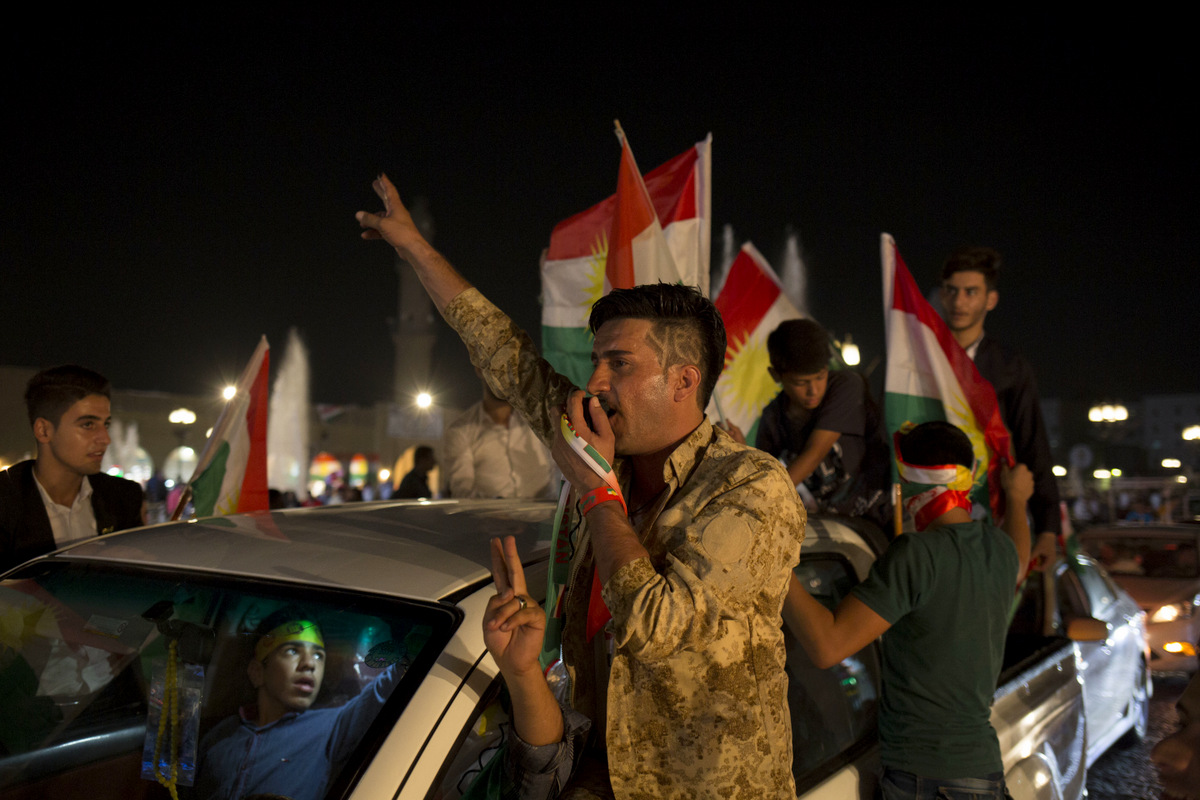
I asked Erbil-based correspondent Ali Musawi about the legitimacy and legality of the Kurdish referendum and what differences has he witnessed pre- and post-referendum.
Ali Musawi:
The actual secession vote itself is acceptable under the Iraqi constitution; however, it requires a mandate from the Iraqi parliament in order for the referendum to go through in any region or province in Iraq, including the Kurdistan region. The Kurdistan region is semi-autonomous: they already had a parliament, and their own judiciary system, and there were many other things that were independent before they decided to go through with this referendum.
What has been done by the Kurdish side is that they unilaterally went ahead with the referendum, not only in the existing Kurdish region but in areas that they retook from Daesh over the past two years. Now, many of them were disputed territories under the Iraqi constitution, territories that both the Kurdish region and the central region in Baghdad claimed to be part of their territories.
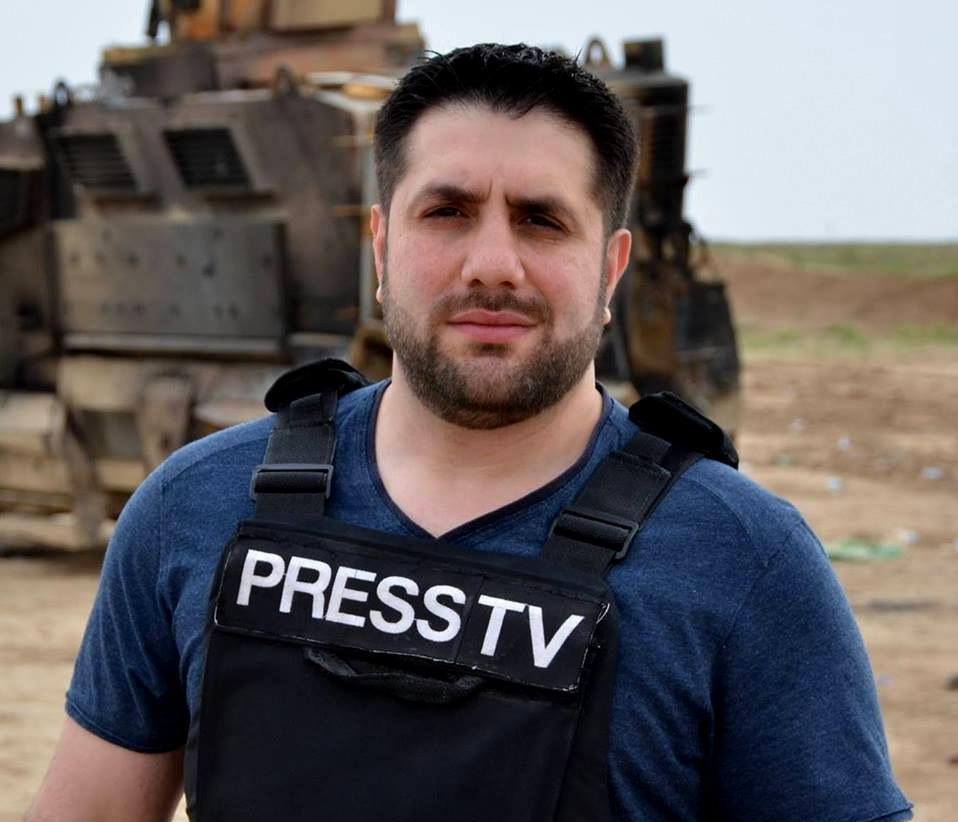
Under the Iraqi constitution, it is also territories that have to be under the Iraqi supervision until a resolution is put in place. However, in places such as Kirkuk province as well as part of Nineveh province where the city of Mosul is — where the Kurdish Peshmerga carried out out the referendum in those places, that has caused an uproar in Baghdad.
The Iraqi Supreme Court rejected holding the referendum in all of Iraq, not just the disputed territories. The Iraqi parliament voted against accepting the results of the Kurdish referendum, which forced the Iraqi prime minister to abide by the law and to bring all Iraqi territory under its control and that is what we have seen over the past few days, especially in Kirkuk and today in Nineveh province.
As to what has changed, before the referendum the Iraqi government was not strict with the Kurdistan region: international flights were under their control; borders in northern Iraq, Iran, and Turkey were all under Kurdish control; the telecommunication and banking system as well. Baghdad was allowing them to control these things because the area was semi-autonomous — however, these things were not part of the agreement.
After the referendum — due to it being a unilateral decision and because the Iraqi parliament voted in favor of bringing all Iraqi territory under the government’s control — Prime Minister Al-Abadi was forced to suspend international flights from Erbil and Sulaimaniyah International airports, two airports that bring a lot of income to the Kurdish region and are responsible for employing a high number of people. They also forced the banking system to work under the supervision of the Central Iraqi government as well as the telecommunications sector. In the past they have asked the Kurdish region many times to return all disputed territory, requests that were ignored.
The Kurdish region was more independent before the independence referendum. The only independence they have now is their own parliament and decisions they make inside of the Kurdish region. That’s it.”
According to Max J. Joseph, an Assyrian artist and writer focusing on minority group issues within the Middle East:
The KRG, dominated for years by the politically bankrupt Kurdistan Democratic Party, were stubborn enough to go ahead with the referendum in the face of almost universal opposition. The problem was that they went one step further by incorporating post-2014, newly conquered lands into the question
I’ve said this so many times: acquiring leverage for expansion and not independence had always been the purpose of the referendum. The KDP et al had calculated that they needed ownership of Kirkuk’s oil for any prospect of independence, so expansion was the first priority.
From the people’s perspective, there simply is no real independence with a black market economy controlled by autocrats. The referendum was a heist, and Baghdad was gradually emboldened enough to foil it… Voting patterns betrayed endemic corruption: ballot boxes were either stuffed or shuttled away secretly, according to eyewitnesses, in keeping with previous elections and referenda conducted by the KRG. Residents were harassed by Kurdish asayish (Kurdish security forces) calling and knocking on their doors, state employees were bused to polling stations and watched over carefully by armed soldiers.”
PM Haider Al-Abadi stated in an October 18 op-ed for The New York Times titled ‘Iraq Will Remain United’:
For the sake of all Iraqi citizens, we cannot allow the seeds of discord to take root again. I urge the leadership in Iraqi Kurdistan to come to its senses. Iraq cannot and will not recognize unilateral, unconstitutional actions taken by a few against the will of the nation. Personal profiteering must be put aside to ensure national prosperity. On behalf of the people of Iraq, I call on the Kurdish Regional Government to acknowledge the authority of the Constitution and to enter dialogue on this basis.”
Iraqi Army takes control of oil-rich Kirkuk
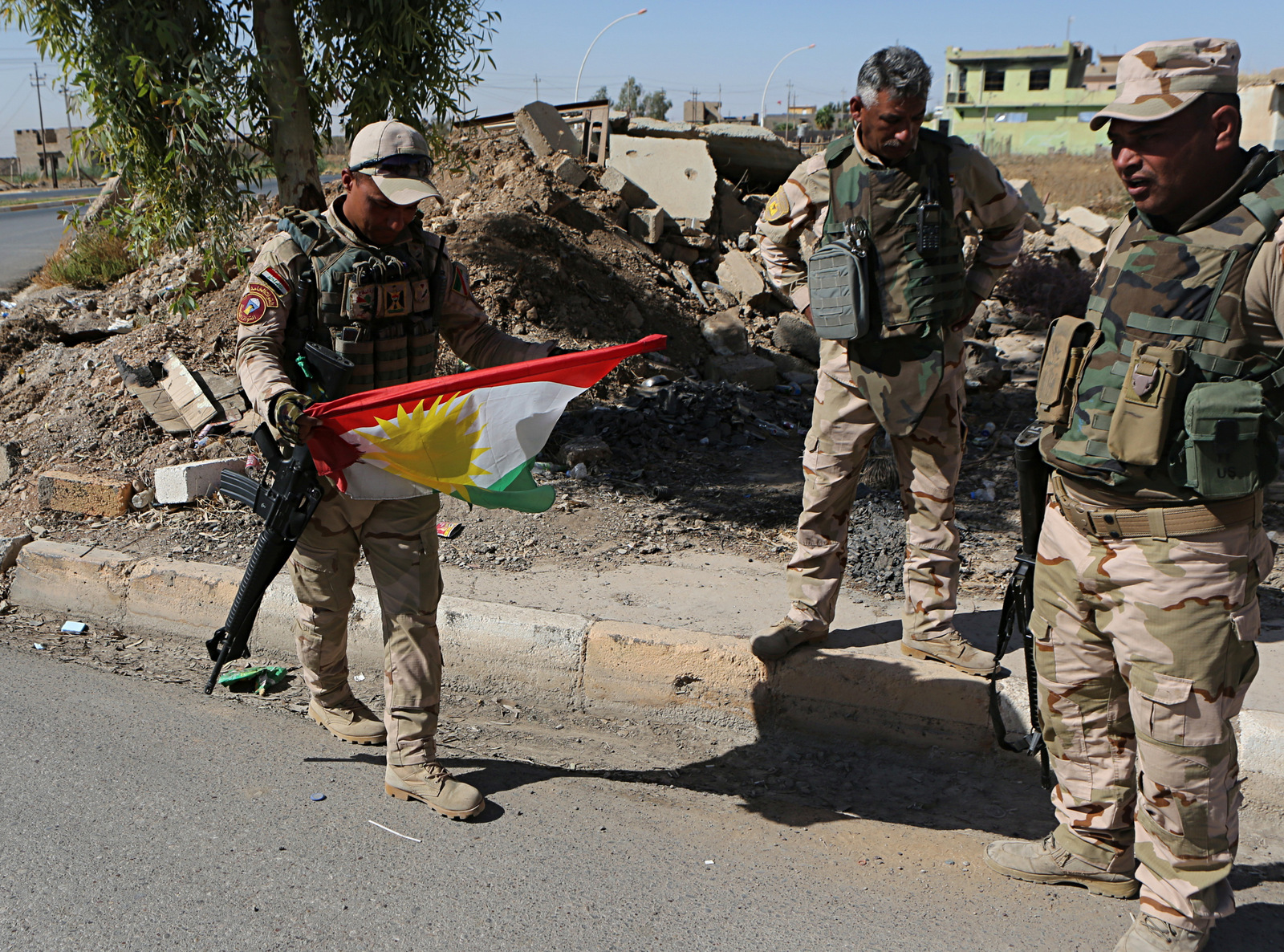
Jordan Shilton, with the World Socialist website, stated:
The retaking of Kirkuk took place after Baghdad negotiated the voluntary withdrawal of Peshmerga forces aligned with the Patriotic Union of Kurdistan (PUK) faction, which is hostile to KRG president Masoud Barzani and opposed September’s Kurdish independence referendum. The referendum, which returned a substantial majority in favor of independence, was condemned by the regional and imperialist powers, and denounced by Baghdad as unconstitutional.”
I asked Ali to tell us what has taken place the past few days in Erbil, Kirkuk, and the surrounding areas. Is the Iraqi government through its army currently fighting with Kurdish factions?
Ali Musawi:
The Iraqi army under Prime Minister Al-Abadi was ordered to go north to the disputed area territories such as Kirkuk — the mandate was to reclaim all Iraqi territory and protect the people of those territories. There was nothing in the mandate stating that the Iraqi armed forces should carry out any offensive against any Iraqi ethnic group. It’s against the Iraqi constitution to use Iraqi armed forces to attack Iraqis. That is a point that needs to be made very clear.
The media was misreporting that the army attacked Kirkuk. Although there were skirmishes when the Iraqi army first entered the outskirts of Kirkuk, those quickly subsided. Today there were no clashes whatsoever. Yesterday, however, there were some people who thought they could halt the advances of the Iraqi armed forces, seeing them as an enemy combatant — and there were some clashes in Kirkuk airport as well as some military bases, which. Iraq needed to bring under its control. But, other than that, there hasn’t been much fighting.
The Peshmerga are not an army. They belong to two different political parties, one being President Massoud Barzani’s party and the other being the late Jalal Talabani’s party. They are already divided. Most of the people in Kirkuk belong to Talabani’s party. They were actually welcoming the Iraqi armed forces — also worth noting, they were against holding the Kurdish referendum. They wanted to uphold the legacy of their former leader, who was the previous president of Iraq not just a party or region of Iraq, and had always been seen as a uniter of the Iraqi people who was open to dialogue and discussion.
This was a main reason for there not being any fighting in Kirkuk. From the tension we have seen three days prior to the Iraqi army entering yesterday, there was talk of thousands of people heading to Kirkuk from the north and other Kurdish areas “to defend it from the invaders.” However the media was wrong in that regard, and it was a very smooth entrance into all disputed territories, not just Kirkuk, that we have seen over the past 24 hours. Pretty much now the Iraqi forces have controlled all of these areas.”
The Kurds retreat to 2003 borders
I asked Ali whether it was true that the Iraqi Kurdistan leadership reached a deal with Baghdad and that they would retreat to the 2003 borders?
Ali Musawi:
It’s not clear yet, but they might return to the 2003 borders in some areas and the 2016 borders in others. However the Iraqi leadership has said that they want to take back all Iraqi territory under the Iraqi constitution, which would most likely follow the 2003 borders.”
Trump’s statement: the U.S. is not taking sides
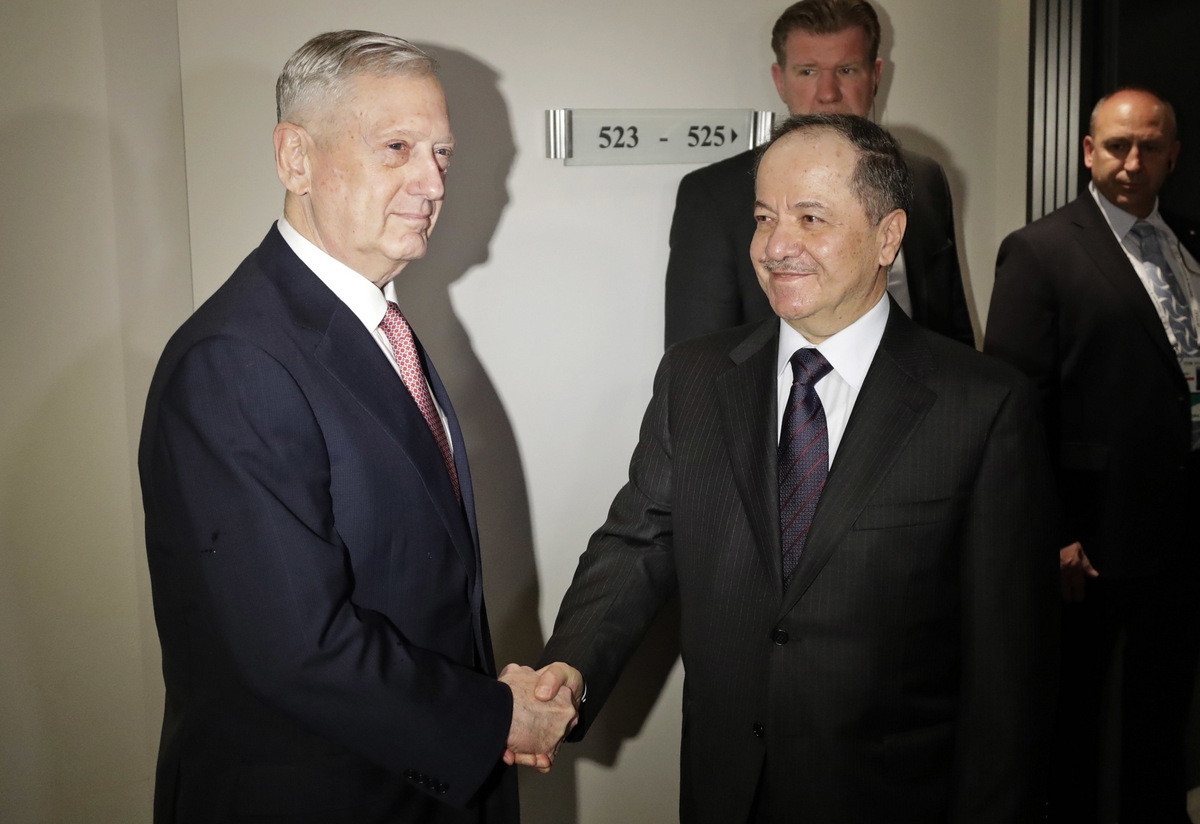
President Donald Trump made a statement on September 16, telling reporters at the White House:
We don’t like the fact that they’re clashing. We’re not taking sides. We’ve had for many years a very good relationship with the Kurds as you know and we’ve also been on the side of Iraq, even though we should have never been there in the first place. We should never have been there. But we’re not taking sides in that battle.”
I asked Ali what he thought about Trump’s statement and whether the U.S. and Israel would be involved in this conflict, since they are arming both sides, or were planning to stay on the sidelines.
Ali also mentioned what other commentators have been saying over the past few days: that many political leaders in the region believe that the real reason behind the rush to hold a Kurdish referendum at such a time was primarily an attempt by Barzani to stay in power.
Barzani: the opportunist
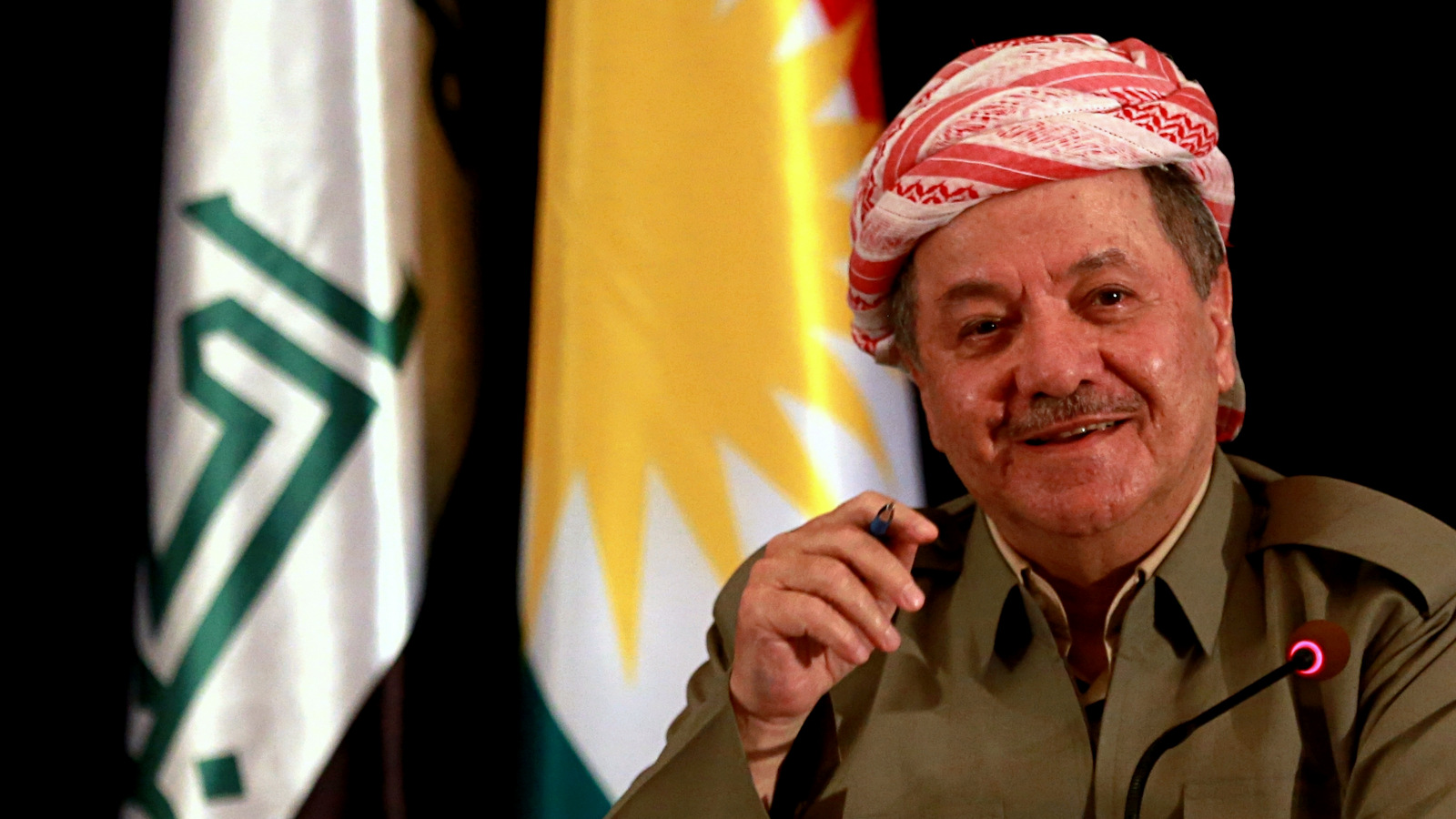
In a 2014 Time magazine article, titled “Massoud Barzani, The Opportunist,” Karl Vick wrote:
When ISIS threw the Middle East jigsaw puzzle into the air, the Kurdish leader reached for a piece. What does it say that the most reliable U.S. ally in its campaign against ISIS is an imaginary country? Kurdistan—Land of the Kurds—exists only in two spheres. One is on maps sold in bazaars wherever the Kurdish language is spoken. The other is on yellow-red-and-green flags Kurds sometimes wave in the countries where they actually reside (according to maps sold everywhere else in the world).
Yet in one of those countries, the Kurds have built themselves a state in all but name. Far to the north of Baghdad, where Iraq’s deserts rise into stony foothills and then into mountains, the Kurdistan Regional Government holds sway. The young statelet has its own army, legislature, border checkpoints, foreign policy and, in Massoud Barzani, a powerful President whose life encapsulates the history of a people whose time finally appears to have come.”
I asked Ali whether he thinks Barzani has sold out the dream of an independent Kurdistan by siding with the U.S. and Israel? With Time magazine, three years prior, having referred to Barzani — one of the runners-up for the publication’s 2014 Person of the Year title — as both an opportunist and a powerful president, did Barzani have the best interests of Kurds at heart today? Also, given that he is four years past the expiration of his term, will there be another election or will he remain the self-proclaimed president of the KRG?
Max J.Joseph had this to say about the KRG:
Even with billions of dollars in funding and aid, weapons, mentoring, Western hand-holding and protection, a near enough limitless output of propaganda, media access, long-term concentrated lobbying efforts, and backing from every section of Western society, the KRG has proven to be fundamentally inept at good governance.
After all, what has all of this time and energy produced? A redundant parliament, shadowy institutions, fatally divided and bickering security forces built along tribal lines— all being sucked through a fiscal black hole. That is the sum of everyone’s investment and support.”
The media hypes up ISIS and its imminent defeat
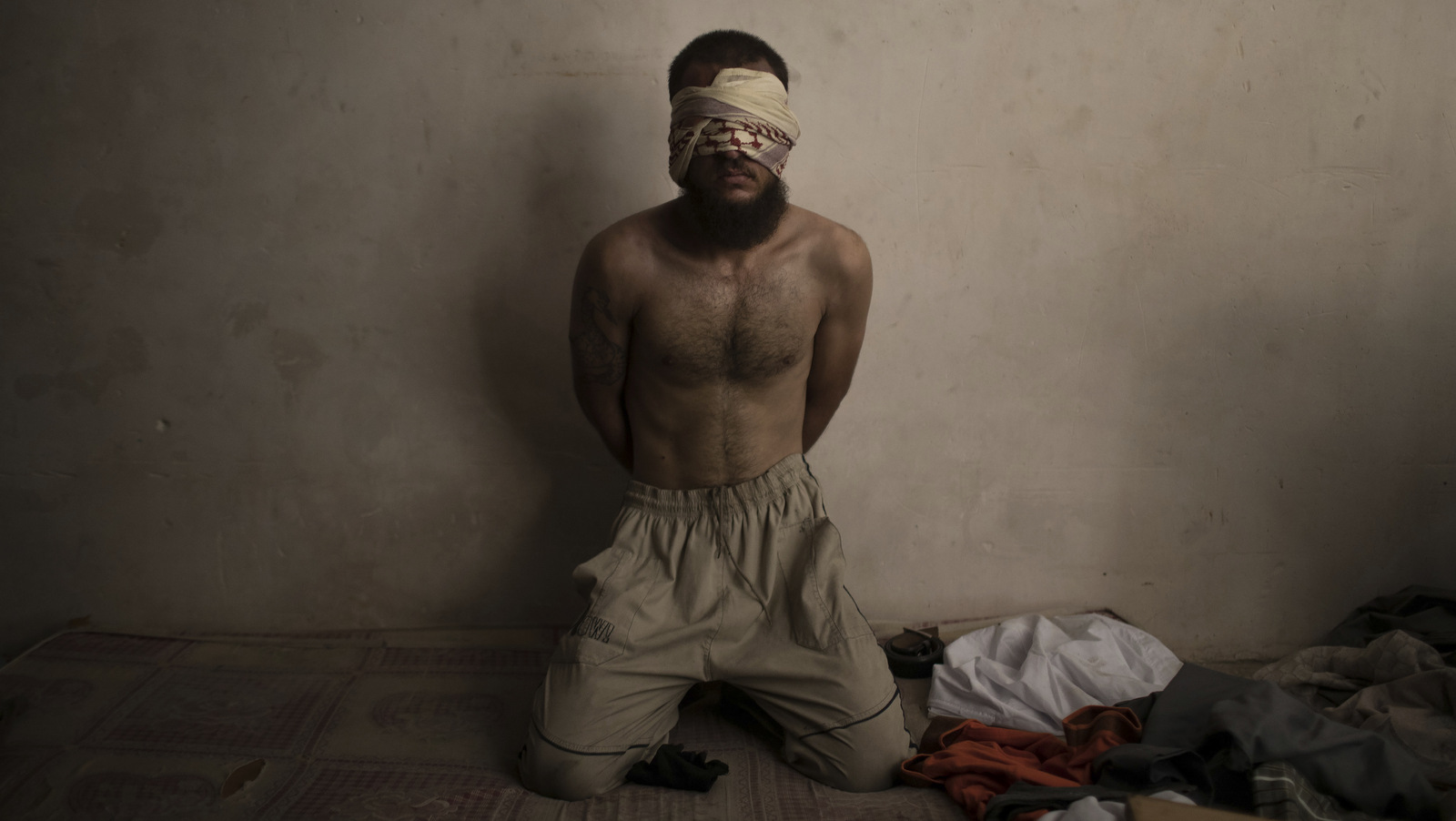
Daesh’s presence in Iraq was hyped up in the media, which gave it life and allowed it to grow.
Ali Musawi:
The actual presence of Daesh was never a huge threat in itself on the ground. It was only a threat created by the media. We go back and forth and we return to the media — that caused the main crisis. The main issue is they overhyped what Daesh was and they created this huge monster, this boogieman that no one can defeat. They refused to report the Iraqi side’s victory or the Syrian side’s victory. We have seen Syria defeating Daesh on many fronts since 2014, yet the media refused to talk about these victories and they kept on allowing allow Daesh to grow in the media.”
Addressing misconceptions about the PMU/PMF

The Popular Mobilization Forces (PMF), also known as the Popular Mobilization Units (PMU) is an Iraqi state-sponsored umbrella organization composed of some 40 militias. It’s comprised of Shi’a, Sunni, Christians, and Yezidi Iraqi fighters and was created in 2014 to fight against Daesh. Many mainstream media outlets refer to the PMU as an Iranian Shi’a armed militia, Ali clears up these misconceptions in his answer.
The future of Kurdish autonomy, the KRG, and Barzani
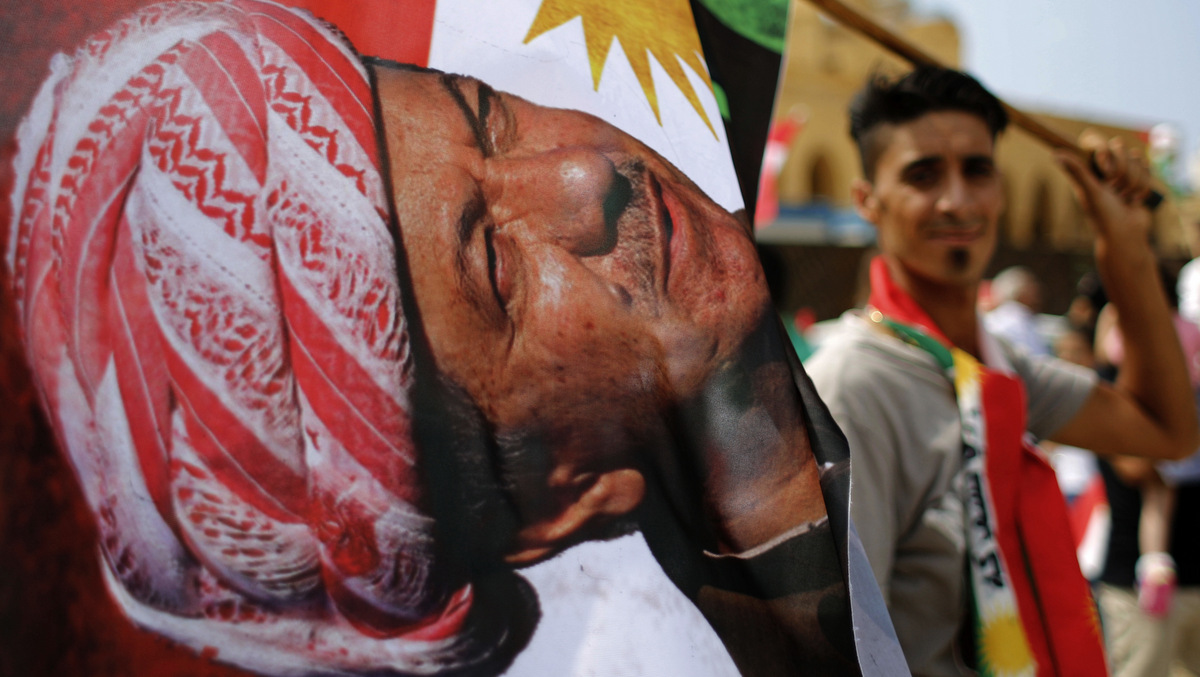
Although it seems that the worst is behind us, the upcoming week might reveal some interesting developments. What was anticipated to be a bloody battle for control over disputed areas quickly turned into a fairly peaceful surrender and withdrawal by the Kurdish Peshmerga. Despite many media outlets beating the war drums, bloodshed in Kirkuk was for the most part avoided. To be sure, some anger among separatists and infighting between Kurdish factions did ensue — but nothing beyond what was expected under the circumstances.
So many people have lamented this historic retreat from Kirkuk, but where were the lamentations for Yazidis and Assyrians when Peshmerga disarmed and abandoned them to ISIS in 2014, only to return years later and declare themselves their liberators and bosses? (Is oil is more important than lives?)
So many people have demonstrated against actions targeting the Kurdish people, but why is there so much silence in the face of an illegitimate and divisive president [referring to Masoud Barzani] with countless deaths on his head”?
Ali Musawi:
There is no real unity between the Kurdish political parties: Kirkuk and Sulaimaniyah are under PUK, whereas Duhok and Erbil are under the KDP. Militarily speaking, they are divided areas and we will likely see them clash after Kirkuk is taken by the Iraqi forces.”
Assyrians, and many other people in territories the KRG have expanded into, are literally praying for the sight of Baghdad-aligned armour rolling through their neighbourhoods and tearing down newly installed portraits of Barzani. That is the reality of how bad the KRG is perceived, but you wouldn’t know it because of all of the media noise and heckling.
With Baghdad, minorities are one degree of separation from sovereign power. With the KRG, we are two degrees away, and underneath a layer of corruption and nepotism so thick we can’t see any route up and out.”
Iraqi Prime Minister Haider Al-Abadi:
The illegal referendum is over, its results invalid and belongs in the past. We call for dialogue based on Iraq’s national constitution
— Haider Al-Abadi (@HaiderAlAbadi) October 17, 2017
The federal government of Iraq seeks continued support and cooperation from our international partners. For now, we urge regional powers and other outsiders not to interfere in our affairs. Iraq must be able to demonstrate its coming of age by using democratic structures to solve internal disputes. In the medium term, the international community can transition their support from security-based to economic-based. Initiatives that build trusted, efficient and democratic forms of local governance across Iraq, including the Kurdish region, are crucial. The fair distribution of resources must form the bedrock of our approach.
Achieving this as one Iraq, with a united vision of our place in the world, is best for our stability. And a stable Iraq is what is best for the stability of the region and the world.”
Top photo | Federal Iraqi security forces gather outside the Kurdish hold City of Altun Kupri, outskirts of Irbil, Iraq, Thursday Oct. 19. 2017. (AP Photo/Khalid Mohammed)


